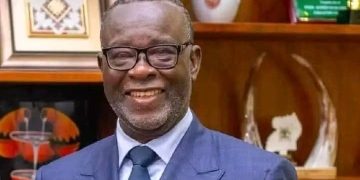Ghana’s Energy Sector Shortfall to Hit $2.2bn by End-2025 as IMF Warns of Mounting Fiscal Strain
Ghana’s energy sector shortfall is projected to rise to US$2.2 billion by December 2025, driven by mounting losses at the Electricity Company of Ghana (ECG), sluggish tariff adjustments, and rising power generation costs, the International Monetary Fund (IMF) has revealed.
According to the IMF, ECG continues to post large commercial and technical losses, while delays in adjusting electricity tariffs—amid a volatile exchange rate and elevated production costs—have exacerbated the sector’s structural imbalances.
This worsening deficit casts a shadow over the government’s fiscal consolidation efforts under the Extended Credit Facility (ECF) arrangement and raises concerns about the long-term sustainability of energy sector financing.
Energy Debt Persists Despite Petroleum Taxes
Despite the raft of taxes imposed on petroleum consumers, analysts warn that the country’s ballooning energy sector debt is unlikely to subside anytime soon. Persistent revenue shortfalls and arrears accumulation continue to weigh heavily on public finances.
In the 2025 Budget, the government earmarked GH¢27.1 billion (approx. US$1.7 billion) to cover the projected shortfall. However, this allocation assumes that key policy actions will be implemented to stem the financial haemorrhage.
These include the resumption of quarterly electricity tariff adjustments, the rollout of the Energy Sector Recovery Programme (ESRP), and the completion of a multi-year tariff assessment (MYTO) by end-September 2025—a structural benchmark under the IMF programme.
PURC Tariff Adjustment, Private Sector Participation in Focus
In a bid to improve cost recovery in the power sector, the Public Utilities Regulatory Commission (PURC) announced a 14.75% increase in electricity tariffs in April 2025. This followed a period of stagnation, with tariffs left unchanged in both December 2024 and March 2025.
The Fund further noted that Cabinet has granted approval to open up power distribution to private sector participation, another end-September 2025 benchmark. This move is aimed at improving operational efficiency and reducing systemic losses.
Cash Waterfall Mechanism Under Strain
The IMF raised concerns about the Cash Waterfall Mechanism (CWM)—the framework used to distribute ECG’s revenue across stakeholders—citing major deviations from expected allocations.
According to the 2024 Revenue/Collection Accounts Validation Report, ECG declared GHS5.3 billion in collections. However, actual payments under the CWM amounted to only GHS3.9 billion, with significant underpayments to some Independent Power Producers (IPPs).
The Fund observed that the shortfall in fuel payments and the addition of a new IPP into the distribution pool had diluted the funds available to other power producers, undermining the mechanism’s credibility.
Gradual Reforms, But Fiscal Pressures Remain
While the Fund acknowledged some progress in addressing long-standing issues within the energy sector, including tariff reforms and data transparency, it emphasised that structural inefficiencies and revenue collection bottlenecks must be urgently tackled to stabilise the sector.
The energy sector’s financial fragility remains one of the key downside risks to Ghana’s economic recovery efforts, particularly as the government balances social spending commitments, debt restructuring targets, and IMF programme conditionalities.








